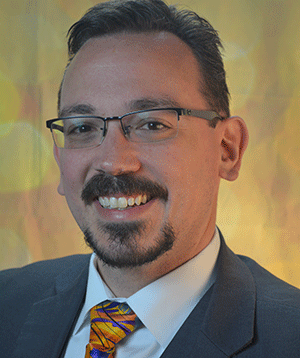World Oxygen Day highlights reimbursement, policy setbacks

By Theresa Flaherty, Managing Editor
Updated 8:52 AM CDT, Fri October 11, 2024
 MIAMI – All humans need oxygen, but for those who need equipment to breathe, it can be harder to access than it needs to be, says Mike Hess, MPH, RRT, RPFT, senior director of advocacy and regulatory affairs for the COPD Foundation, which hosted its second World Oxygen Day on Oct. 2.
MIAMI – All humans need oxygen, but for those who need equipment to breathe, it can be harder to access than it needs to be, says Mike Hess, MPH, RRT, RPFT, senior director of advocacy and regulatory affairs for the COPD Foundation, which hosted its second World Oxygen Day on Oct. 2.
“We’ve seen massive contraction in the DME space, and we’ve seen a lot of other barriers and that has translated into suboptimal use of oxygen therapy,” he said. “On a global scale, we saw during the pandemic that the oxygen infrastructure wasn’t up to the task. We wanted to figure out how to remedy that.”
Lack of investment
The biggest barrier to access is the lack of reimbursement for oxygen equipment and services, which puts a damper on innovation, says Hess.
“That puts a lot of stress on HME providers but also, those providers aren't able to purchase the latest, greatest, sexiest thing, so it's difficult for manufacturers to get a return on their investment in research and development,” he said. “People are running businesses and so they have to put their money where they're going to get the best return on it and, unfortunately, that hasn't been in oxygen innovation.”
‘Like being under house arrest’
When it comes to increasing access, patient stories are the best tool the health care and advocacy communities have, says Hess, who points to the experience of a busy patient with pulmonary hypertension who can only spend 14 hours per week outside of her home.
“That's how many tanks that her DME provider can provide her during the course of a week,” he said. “These are people who have a lot of co-morbidities as well, and so when it comes to managing their health and staying active in the community, it really starts restricting a lot of them. She said it’s like being under house arrest, not because of the technology but because policy has made it unaffordable.”
‘A lot of work to do’
A key focus of World Oxygen Day and beyond is advancing the Supplemental Oxygen Access Reform (SOAR) Act, bi-partisan legislation designed to make supplying oxygen equipment more patient-centric and business friendly. The bill would, among other things, remove supplemental oxygen from Medicare’s competitive bidding program and require the use of a clinical template.
“There are a lot of gaps out there and we are very excited to work with anybody who will work with us,” Hess said. “DME providers can fill the patient education gap. Honestly, we don't have a lot of folks that are talking about oxygen to offices who know much about the equipment other than, you know, turning it off and on.”
Comments